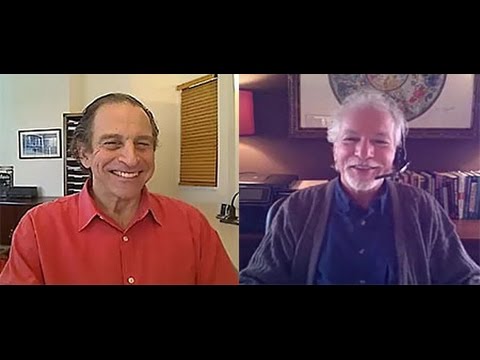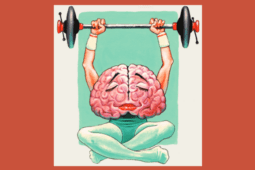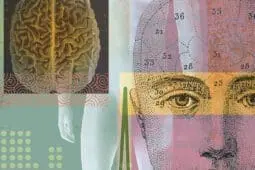Body
The Tribal Classroom
Applying attachment theory in schoolsLou Cozolino believes that attachment theory and neuroscience may offer the key to transforming our troubled educational system. Read more
VIDEO: Adjusting Lifestyle Habits for Mental Health
Connecting the Dots between Biology and BrainworkIf you’ve got a client who frequently oversleeps, binges on junk food and alcohol, and passes up fresh air for hours in front of the television, there’s a... Read more
VIDEO: Unlocking the Emotional Brain
Confronting Self-Limiting BeliefsBruce Ecker shows how to apply the process of memory reconsolidation to bring about transformational change and therapeutic breakthroughs. Read more
VIDEO: Helping Clients Integrate Past and Present
Bessel van der Kolk on Integration and Healing in Trauma TreatmentImagine the helplessness of being unable to distinguish painful past experiences from present ones. According to Bessel van der Kolk, author of The Body Keeps... Read more
Wired for heterosexuality or homosexuality?
The difference between the gay and straight brainIt’s a topic that has been at the center of countless debates, both rational and irrational. Is there a clear biological difference between the heterosexual... Read more
When Talk Isn’t Enough
Easing Trauma’s Lingering ShockPioneering trauma expert Bessel van der Kolk shares his thoughts on the differences between public and private trauma. Read more
VIDEO: The Neurobiology of Anxiety
How to Incorporate Brain Science into Your Treatment ApproachAccording to Margaret Wehrenberg, when it comes to clients with panic disorders, the first thing to discern is what they’re doing to avoid panic. “The... Read more
VIDEO: What Distinguishes the Male and Female Brain?
How the Evolutionary Story Lives within Each of UsWhy do young boys tend to roughhouse while young girls lean towards relational play? According to Louann Brizendine, these and many other differences observed... Read more
Putting the Pieces Together
25 Years of Learning Trauma TreatmentTwenty-five years ago, we believed that helping trauma survivors dig into dark and unspeakable horrors would set them free. But in this new age of trauma... Read more
Engaging the Emotional Brain
Highlights from Symposium 2014To get through to clients in our increasingly ADD culture, therapists must learn to evoke a deeper, more visceral engagement with them. At this year’s... Read more
Do Brain Games Build Cognitive Muscle?
Grim Job Prospects for Mental Health GradBrain games and grad prospects Read more
The Case for Neurofeedback
Rewiring the brain in the consulting roomThe increasing popularity of neurofeedback is based on the growing evidence that a wide variety of psychological disorders can be understood as firing mistakes... Read more
Brain Imaging and Psychotherapy
Why is it so controversial?For nearly 20 years, psychiatrist Daniel Amen has led a controversial crusade to make brain imaging an accepted part of psychotherapeutic practice. Read more
Me and My Belly
A Lifelong RelationshipA middle-aged man explores his troubled relationship with the body his genetics have saddled him with. Read more
Managing Transference and Countertransference in Somatic Therapy
Does Body-Oriented Therapy Increase the Risk of Transference and Countertransference Responses?Therapeutic skeptics still cite the possibility of stirring up intense transference and countertransference responses as a compelling reason not to use more... Read more
VIDEO: Letting the Body Lead
Ann Randolph on Truly Embodied EmotionAnn explains how imbuing body parts with feelings can lead clients to more embodied and clarifying emotional experiences than talk alone can provide. Read more
Mindfulness-Based Stress Reduction: The Precursor to Mindfulness Therapy
Mindfulness-Based Stress Reduction Brings Eastern Mindfulness Techniques to Western MedicineIn the late 1970s, before mindfulness exercises caught on in psychotherapy, mindfulness meditation was making inroads into the medical community. This was... Read more
Beyond Lip Service
Confronting Our Prejudices Against Higher-Weight ClientsTherapists should not only be aware of their prejudices toward higher-weight clients, but should commit themselves to challenge those attitudes as well. Read more
VIDEO: What Does a Client Really Want from Therapy?
Stephen Gilligan on the First Step Toward a Creative BreakthroughIn this clip Stephen Gilligan talks about one of the techniques he employs to help new clients be more specific in setting their therapy goals. Read more
Understanding Somatic Experience: Working With the Body to Heal the Mind
How Can Therapists Overcome Fears About the Body with Clients Who Struggle to Heal from Painful Somatic Experiences?It’s the very fact that both emotion and reasoning ability are held hostage by their body’s continuing physical reaction to trauma that makes healing so... Read more
What’s happening when a client suffering from symptoms of depression is willing to follow the therapist’s voice with eyes closed? According to Zindal Segal... Read more
Practicing Meditation Against All Odds
Zindel Segal on the Three-Minute Breathing SpaceZin Segal discusses how clients can achieve mindful awareness of their emotional states in just three minutes. Read more
Are Antidepressants the Answer?
Michael Yapko on the Safety and Effectiveness of AntidepressantsMichael Yapko lays out a variety of reasons why antidepressants are not the solution for every client suffering from depression. Read more
The Mindful Body: Communicating With the Body in Therapy
How a Transition to Mindful Body-Focused Therapy Enriched a Formerly Talk-Only PracticeIt’s an article of faith among many somatically-oriented practitioners that the body knows more, knows it more directly, and expresses it more honestly than... Read more
Editor's Note - January/February 2014
The Impassable DivideMore and more therapists have begun wondering how far all our impressive-sounding talk about the brain has gone in improving therapy’s effectiveness. After... Read more
The Next Big Step
What’s Ahead in Psychotherapy’s Fascination with Brain Science?Labeling behavior in fancy neurophysiological terms can make what we do sound more scientifically rigorous than the notoriously fuzzy language of... Read more
The Great Deception
We’re Less in Control Than We ThinkMost of us put much too much faith in the power of our conscious minds to bring about lasting change. Instead of looking up the higher branches of... Read more
Beyond Phrenology
Let’s Look at How the Brain Really WorksIf therapists are going to bring genuine insights—not just soundbites—from neuroscience into the practice of therapy, they need the nuanced, sophisticated... Read more
What Is This Thing Called Love?
A Whole New Way of Looking at ItMore than any other positive emotion, love resides within connections. It extends beyond personal boundaries to characterize the vibe that pulsates between and... Read more
Why We Focus on the Negative
Rick Hanson Explains the Evolution of the Negativity BiasMuch can be made of the power of positive thinking, but the real question is, why do we tend toward the negative in the first place? Read more



























